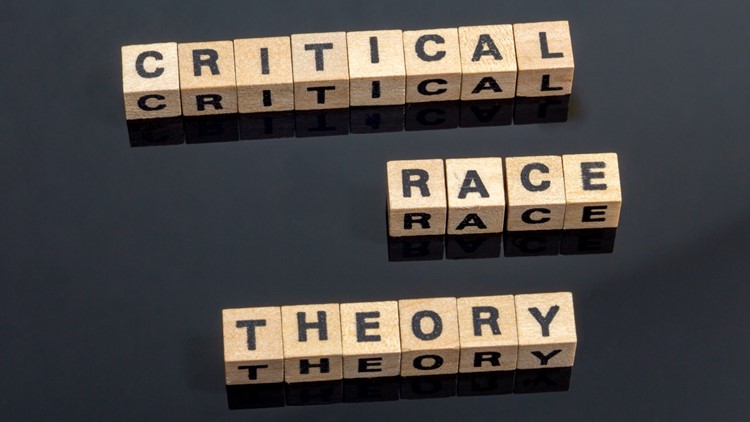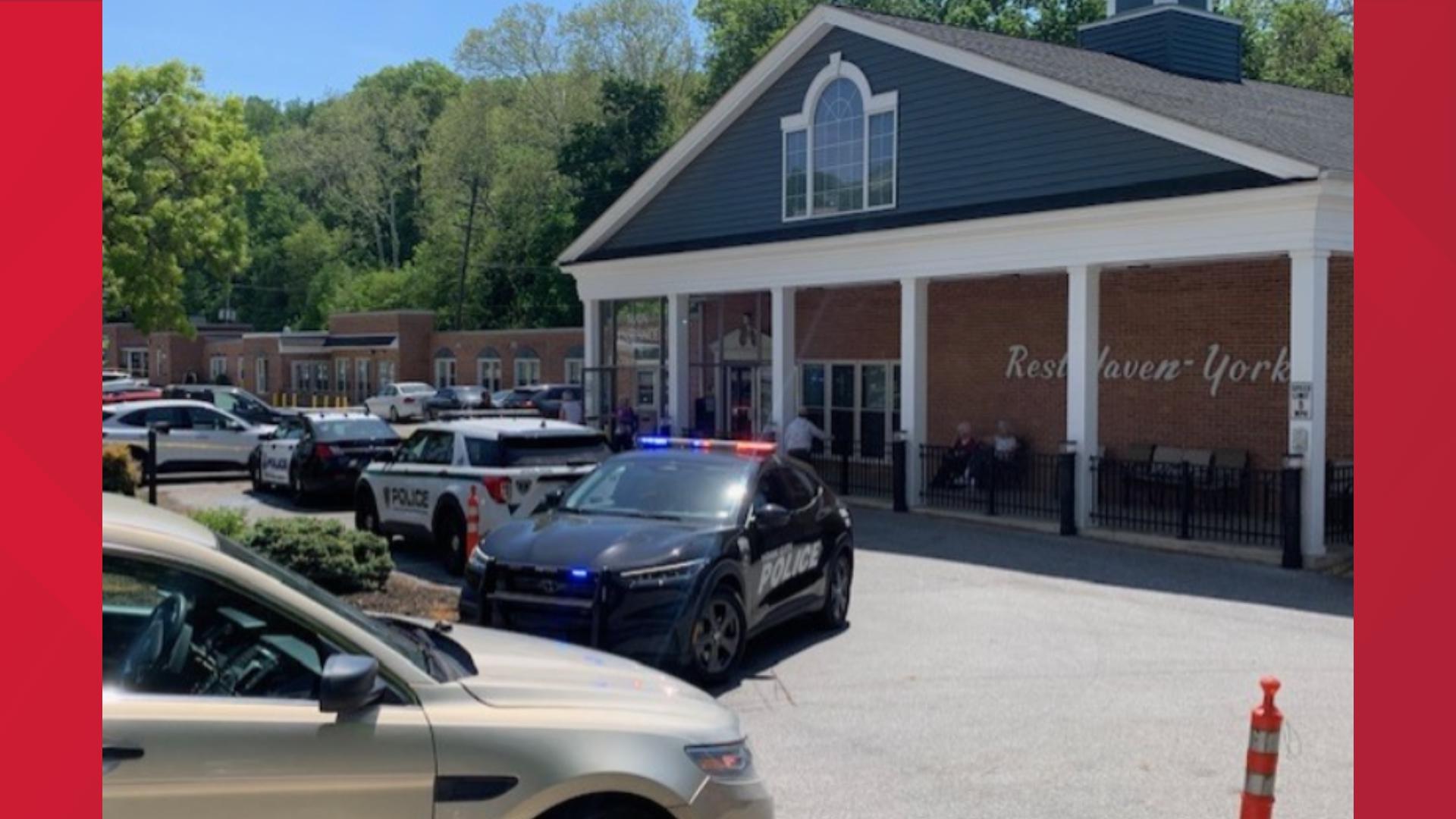Critical race theory (CRT) has been a controversial topic in the United States over the past year. Nine states, including Texas, South Carolina and North Dakota, passed legislation to ban CRT from being taught in school classrooms in 2021, according to the Brookings Institution. Dozens of other state legislatures and school boards across the country are also considering banning CRT. But what exactly is CRT and is it really being taught to K-12 students?
Here are the facts about Critical Race Theory.
THE SOURCES
- Janel George, associate professor of law at Georgetown University
- Association of American Educators (AAE)
- American Federation of Teachers (AFT)
- NAACP Legal Defense and Educational Fund, Inc.
- Purdue University Online Writing Lab
FAST FACTS
What is critical race theory? Critical race theory is an academic and legal framework that examines the role of systemic racism in American society, according to the NAACP Legal Defense and Educational Fund, Inc. Critical race theory, as it's defined academically, is most often taught in colleges, universities and law schools.
WHAT WE KNOW
The definition of critical race theory
Critical race theory is an academic and legal framework that examines the role of systemic racism in American society — from education and housing to employment and healthcare, according to the NAACP Legal Defense and Educational Fund, Inc.
“It's an approach for understanding and examining race and racial inequality and how it can be replicated through systems and structures,” said Janel George, an associate professor of law at Georgetown University.
CRT recognizes that racism is more than the result of individual bias and prejudice, the NAACP says. It is embedded in laws, policies and institutions that uphold and reproduce racial inequalities.
When critical race theory was first developed
CRT developed into its current form during the mid-1970s when scholars like Derrick Bell, Alan Freeman and Richard Delgado responded to what they identified as dangerously slow progress following the Civil Rights Movement of the 1960s, according to the Purdue University Online Writing Lab.
“The originators focused on: ‘Why is racial inequality continuing to endure in a post-Civil Rights era?’” said George. “What they recognized is that racism, unfortunately, is a normal feature of American life, and that it's not individual bad actors, but systems and institutions that can do the bulk of replicating racial inequality.”
Purdue University says prominent CRT scholars, including Kimberlé Crenshaw, Mari Matsuda and Patricia Williams, share an interest in recognizing racism as a regular aspect of American life manifested in textual sources like literature, film, law, etc.
The origin of the controversy surrounding critical race theory
Senior fellow at the Manhattan Institute and journalist Christopher Rufo declared a “one-man war against critical race theory” in August 2020 after Sandia National Laboratories, a federally funded research and development center (FFRDC), held a diversity and inclusion training seminar.
"This was a mandatory program for white male executives where they were supposed to essentially break down their white male identity, confess their sins to diversity trainers," Rufo told Fox News host Tucker Carlson. “It's nothing more than a cult indoctrination session that's based on critical race theory, something that is spreading like wildfire through our public institutions.”
Rufo appeared again on Fox News in Sept. 2020, where he called on then-President Donald Trump to “end the widespread practice of indoctrinating federal employees.” A few days after Rufo’s Fox News appearance, Russell Vought, the director of the Office of Management and Budget at the time, sent out a memo on Sept. 4, 2020, ordering federal agencies to “cease and desist from using taxpayer dollars to fund these divisive, un-American propaganda training sessions.” A few weeks after that memo was sent out, Trump issued an executive order banning diversity trainings in the federal government.
“When former President Trump issued his executive order seeking to ban diversity trainings, or federal funds for diversity trainings, that started this conflation of critical race theory with anything associated with race, and it's not,” said George. “Again, it's a legal theory that lives in the academy. It's used and adopted by many including civil rights activists for understanding the endurance of racial inequality, but it is not synonymous with a diversity or inclusion training.”
In Jan. 2021, Rufo launched the “Stop Critical Race Theory” legal coalition, stating that the group had already filed three lawsuits against public institutions conducting CRT programs and planned to file additional lawsuits in the state and federal courts in the coming months.
Rufo tweeted in March 2021: “The goal is to have the public read something crazy in the newspaper and immediately think ‘critical race theory.’ We have decodified the term and will recodify it to annex the entire range of cultural constructions that are unpopular with Americans.”
Where critical race theory is and isn’t being taught
Randi Weingarten, the head of the American Federation of Teachers (AFT), said CRT is taught in law school and college during a speech at the AFT TEACH Conference in July 2021.
"Let’s be clear: Critical race theory is not taught in elementary schools or high schools. It’s a method of examination taught in law school and college that helps analyze whether systemic racism exists—and, in particular, whether it has an effect on law and public policy,” Weingarten said.
During her speech, Weingarten called out some lawmakers and Fox News for using the anti-CRT campaign “to distort history, limit learning and stoke fears about our public schools.”
“Culture warriors are labeling any discussion of race, racism or discrimination as CRT to try to make it toxic. They are bullying teachers and trying to stop us from teaching students accurate history,” Weingarten said. “This harms students. These culture warriors want to deprive students of a robust understanding of our common history. This will put students at a disadvantage in life by knocking a big hole in their understanding of our country and the world.”
George told VERIFY teaching critical race theory to grade school-aged children “would be next to impossible.”
“Again, critical race theory is a legal theory,” said George. “It doesn't mean that some of the tenants or some of the approaches could not be adopted, if you will, but to conflate critical race theory, again, with diversity trainings, or anything related to race is really distorting its meaning.”
According to the results of a survey released in July 2021 by the Association of American Educators (AAE), a national, non-union, professional association serving educators in all 50 states, nearly 96% of the 1,136 respondents said they had not incorporated critical race theory into their curriculum nor were they expecting to do so in the 2021-2022 school year. Meanwhile, the AAE says only 4.1% of respondents report being mandated or required to teach CRT.
An AAE spokesperson told VERIFY the respondents of the survey are K-12 educators from all school settings: traditional public schools, public charter schools, private schools, virtual/online schools and homeschools. The majority of respondents (79.01%) were traditional public school educators. The next highest category of respondents were public charter school educators at 9.96%.
The survey showed that 44.7% are in favor of CRT being an option for educators. Only 11% believe CRT should be required or mandated. However, the AAE says 81% of respondents believe curriculums should include the stories, experiences and narratives of a diverse group of cultures.
Do you have a question about critical race theory? Email our team at questions@verifythis.com or text us at 202-410-8808.



